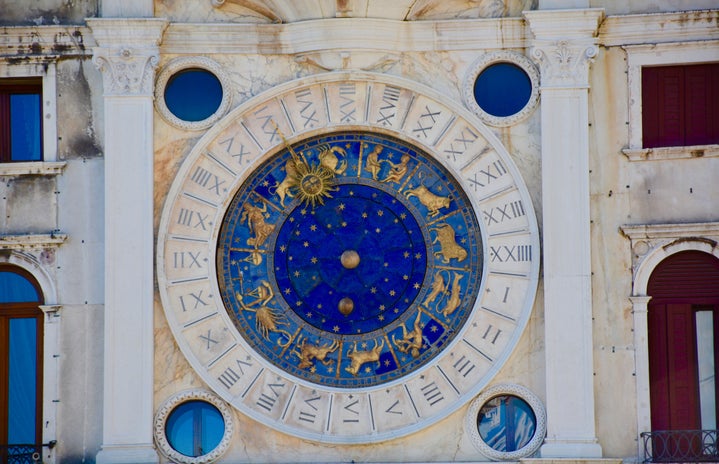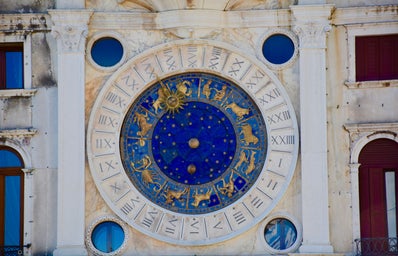In my tote bag, I always make sure I carry three things with me: tampons, lip balm, and a small, clear quartz crystal. When I’m stressed, I find that holding it in my hand and closing my eyes is incredibly grounding. Clear quartz has been historically used by spiritual people to restore their energy and help with emotional stability. Manifesting with it in hand brings me peace, and makes me feel better when nothing is going my way.
I’m not ashamed of it.
I’ve gotten many weird looks in class for placing it on my desk before a test, or meditating with it on the metro. These same stares arise whenever someone takes their astrology too seriously. When people (usually straight, white frat boys) see my tattoo, which is a simple drawing of the constellation Aquarius right above my hip, they often roll their eyes and say something to the effect of “Oh, you’re one of those.” Astrology, crystal healing, and tarot are so frequently looked down upon in today’s society, largely by older generations, straight men, and white people who all don’t know the deep history of the practices. The practices are no more plausible than any of the major religions, so it’s time to quit making fun of spiritual people.
Crystal healing has a rich history that is too often in modern society disrespected or dismissed as being “a young white girl trend.” Crystal healing has been prevalent in societies and civilizations all over the world for thousands of years, and shouldn’t be reduced to disrespecting it based on its modern audience.
Crystal healing dates all the way back to the ancient Sumerians, starting all the way back in 4500 BC. Ancient Egyptians also used them in rituals, using lapis lazuli, turquoise, carnelian, emerald, and clear quartz in amulets and graves for protection and health, according to Forbes Health. Ancient Greek soldiers used to rub hematite over their bodies before battle, as they associated the stone with Aries, the Greek god of war.
Crystals are also mentioned all throughout the Bible, including the book of Exodus. The origin of birthstones is Aaron’s breastplate, also known as the High Priest’s Breastplate. And yet, the modern Christian church condemns the usage of crystal healing and denotes it as a form of paganism, but its rich history in the faith cannot be ignored.
The astrological tradition started with the ancient Babylons, around 2000 BC. The 12 astrological signs are deeply intertwined with multiple cultures. Greco-Roman astrologer Ptolomy (100-170 AD), who lived in Alexandria during Roman Egypt, was a particular advocate for astrology. His work “Tetrabiblios” laid the foundation for modern Western astrology. The ancient Greeks also contributed to astrological theory, comparing it to the stories of their gods.
Astrology has been practiced for thousands of years, yet it is continually acknowledged in modern society as a new, Gen Z, college woman invention. I find comfort and connection in astrology that many others find in traditional religion. I, and I assume many others, feel invalidated and disrespected when people call it “fake,” or “ridiculous.” It is something that I, and so many others, find a community in and find peace within. To be reduced as a “fake spiritual identity,” while other major religions are just as plausible, is invalidating and hurtful. It is an identity that people for thousands of years have identified with, and people need to stop dismissing it as a new fad or trend.
Modern American society has continually dismissed and disregarded spirituality, regarding it as a young-women’s fad or a Gen Z trend. But why is having a young female audience demonized in today’s world? Especially when a tradition has such a diverse historical tradition, all spiritualities should be respected, no matter how “untraditional.” Respect historical, comforting, and all traditions. Me, and all my other spiritual girlies, would absolutely appreciate it.


